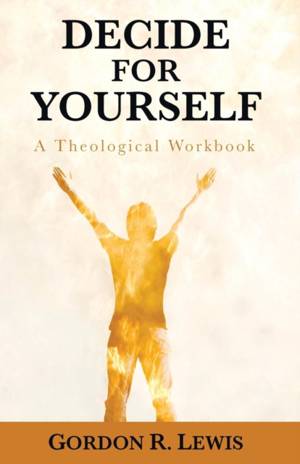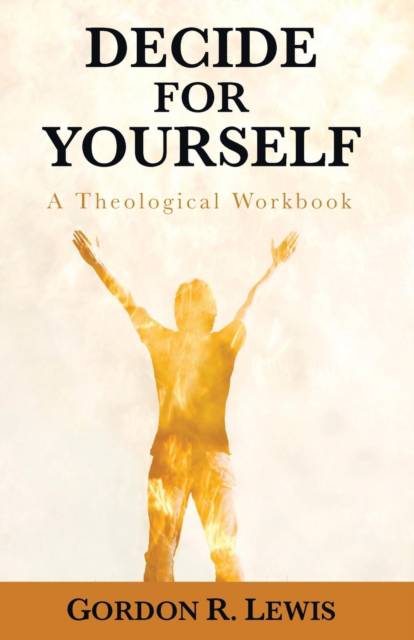
- Afhalen na 1 uur in een winkel met voorraad
- Gratis thuislevering in België vanaf € 30
- Ruim aanbod met 7 miljoen producten
- Afhalen na 1 uur in een winkel met voorraad
- Gratis thuislevering in België vanaf € 30
- Ruim aanbod met 7 miljoen producten
Zoeken
Omschrijving
The great Christian doctrines are worth thinking through for ourselves. That's why Gordon Lewis has provided this concise and complete survey of the major truths of the Christian faith. But rather than just telling us what he has discovered in Scripture, he offers a theological workbook that helps us explore the evidence itself and to draw our own conclusions. He has organized the material around the main themes of God, Christ, the Holy Spirit, humanity, creation, the church, and the end times. This unique text has been used by students of the Bible over the last three decades in the classroom, in the home and in the church. Its enduring quality continues to make it a valuable tool for all who want to develop a systematic theology for themselves. Of Lewis's six published books, his Decide for Yourself: A Theological Workbook has been the most versatile. It has been used in informal neighborhood and college Bible studies, church education classes, youth groups, Bible schools, colleges, and seminaries, and extension courses in theological education. It has been translated into Arabic, Chinese, French, Lithuanian, Spanish and Vietnamese. Chapters 1-3 are updated to interact with the postmodernist views of human language.
Specificaties
Betrokkenen
- Auteur(s):
- Uitgeverij:
Inhoud
- Aantal bladzijden:
- 180
- Taal:
- Engels
Eigenschappen
- Productcode (EAN):
- 9781620323250
- Verschijningsdatum:
- 1/10/2012
- Uitvoering:
- Paperback
- Formaat:
- Trade paperback (VS)
- Afmetingen:
- 140 mm x 213 mm
- Gewicht:
- 158 g

Alleen bij Standaard Boekhandel
+ 72 punten op je klantenkaart van Standaard Boekhandel
Beoordelingen
We publiceren alleen reviews die voldoen aan de voorwaarden voor reviews. Bekijk onze voorwaarden voor reviews.











